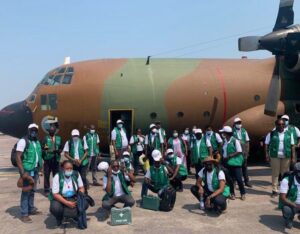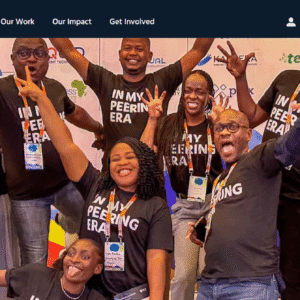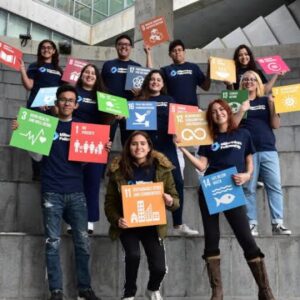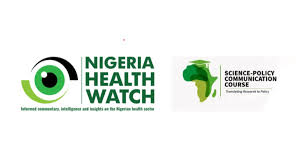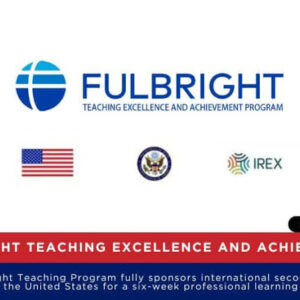Call for Applications: The African Epidemic Service Program 2025 (AES) – Africa CDC Empowering Africa’s Public Health Workforce
The African Epidemic Service: Empowering Africa’s Public Health Workforce
In an increasingly interconnected world, the rapid spread of disease can pose significant challenges to public health systems. The African continent, with its diverse populations and varying healthcare capacities, faces unique obstacles in responding to disease outbreaks and epidemics. To meet these challenges head-on, the Africa Centres for Disease Control and Prevention (Africa CDC) has launched the African Epidemic Service (AES), a program designed to enhance public health capabilities across the continent through specialized training and workforce development.
About the Africa CDC and Its Mission
Established as an autonomous technical agency of the African Union (AU), Africa CDC aims to bolster Africa’s ability to prevent, detect, and respond to disease threats and outbreaks. The organization’s work is driven by science, policy, and data, ensuring that interventions and programs are both effective and efficient. Africa CDC’s mandate, as outlined in Article 3 of its governing statute, includes supporting AU member states by enhancing public health capacity through medium and long-term field epidemiology and laboratory training programs.
To realize this vision, Africa CDC formed a Task Force for Workforce Development in 2018, bringing together representatives from public health organizations, academia, global health agencies, and AU member states. The Task Force developed a comprehensive Framework for Workforce Development, focusing on three key areas of public health: field epidemiology, laboratory leadership, and public health informatics. These areas are critical to building robust public health systems capable of addressing emerging health threats.
Requirements
This program targets qualified applicants across Africa Union Member states who are drawn from public health informatics and interested in practicing digital health and data science. Eligibles candidates must:
- in health-related or Computer Science, Data Science, or Information and Technology Sciences.
- Have a minimum of 3 years (For Master) and 5 years (For BSc) of relevant experience.
- If the primary degree is health-related, then experience with computer science, data science, or information sciences projects for health.
- If the primary degree is in computer science and other applications in health, then experience with Health, Medical, Clinical, or Bio- Informatics Public health, biostatistics, or epidemiology.
- Candidate currently employed by Ministries of Health (MoH) or National Public Health Institutes (NPHI) or agency working closely with MoH/NPHI or relevant private sector is desirable. The fellowship program will prioritize inclusivity, gender equity, and representation from across the continent
Benefits
- AES-PHI Fellowship is fully funded. Africa CDC will provide all learning and development materials and meet all costs associated with the fellowship, including travel-related costs (e.g., airfare, lodging, incidentals), stipends, hardware, and insurance. Fellows will be supported to ensure that they have the relevant software and sufficient Internet connectivity for online learning.
How to Apply
All applications must be submitted using the online application form. Incomplete applications will not be considered. All applicants must provide the following information:
1. A national passport from an African Union Member State.
2. An official letter of support with permission from a government institution to attend the two-year training programme with the right to return post training (different from Letter of Recommendation).
3. Letters of recommendation from two reputable professional referees.
4. An official degree and student copy transcripts of your bachelor’s degree. (The official transcript will be requested from your university upon acceptance to this program.)
5. An official degree and student copy transcripts of your master’s degree. (The official transcript will be requested from your university upon acceptance to this program.)
6. An updated Resume
7. Statement of Purpose (1500 words maximum), outlining your formal education, work experience and why this program would be a good fit, and further outlining how this training will impact your country. Completed applications with all supporting documents should be uploaded to the online portal. Incomplete applications will not be considered.
The African Epidemic Service (AES)
One of the most impactful outcomes of this initiative is the African Epidemic Service (AES). The AES is a prestigious, two-year competency-based training program that aims to strengthen the disease prevention and response capacities of African Union member states. The program is structured around three distinct tracks: Epidemiology, Laboratory Leadership, and Public Health Informatics.
1. Epidemiology Track
The Epidemiology Track of the AES is designed to train public health professionals in the core skills required to combat disease outbreaks through applied epidemiology. This track equips Fellows with the knowledge and practical experience to identify, track, and respond to diseases that threaten the continent. Fellows are immersed in both classroom learning and hands-on field experience, allowing them to develop the competencies necessary to drive public health initiatives effectively. The program not only enhances the skills of these professionals but also ensures that they are prepared to take leadership roles in tackling Africa’s most pressing public health challenges.
The first cohort of 10 exceptional Fellows has already completed their didactic training and has been deployed to host sites across Africa to apply their knowledge in real-world settings. The second cohort is now being sought, and applications are currently open for public health professionals with an interest in applied epidemiology.
2. Laboratory Leadership Track
The Laboratory Leadership Track focuses on building the technical and managerial skills of public health laboratory professionals. This track is crucial in strengthening Africa’s laboratory infrastructure, which plays a central role in disease detection, surveillance, and research. Laboratory leadership training ensures that Fellows are equipped to manage complex laboratory operations, respond swiftly to disease outbreaks, and implement quality assurance protocols that enhance diagnostic capabilities across the continent.
3. Public Health Informatics Track
The Public Health Informatics Track is designed to improve the integration of data and technology in public health systems. This track focuses on enhancing skills related to health data management, analysis, and the use of digital tools in monitoring and responding to health threats. As digital health solutions become increasingly important in disease surveillance, public health informatics professionals will be at the forefront of transforming Africa’s response to epidemics and health crises.
Eligibility and Application Process
The AES is open to qualified applicants from all African Union Member States who have a background in public health disciplines. This includes professionals from diverse fields such as medicine, veterinary medicine, nursing, environmental health, occupational health, and other associated public health fields. The program seeks passionate leaders who are eager to develop expertise in epidemiology and are ready to take on assignments across the African continent.
Applicants must demonstrate a strong interest in public health and a willingness to work on a wide range of topics related to disease prevention and response. The AES program offers an opportunity to grow professionally and make a tangible impact on Africa’s public health landscape.
Application Details:
- Deadline: March 31, 2025
- Program Start: Inaugural training for the second cohort will commence following the selection process.
- Application Process: Interested candidates can download the AES prospectus in English, French, Portuguese, or Arabic and submit their applications through the provided link.
Contact: For further information, please reach out to: yabsiray@africacdc.org
Why This Program Matters
The AES program plays a vital role in developing Africa’s public health workforce and empowering the continent to better respond to epidemics and disease outbreaks. By providing specialized training in key areas such as epidemiology, laboratory leadership, and health informatics, the program strengthens the capacity of African nations to address health threats more effectively and sustainably.
Public health challenges in Africa are growing in complexity, with diseases like malaria, tuberculosis, and emerging zoonotic diseases remaining significant threats. With the added pressures of climate change, urbanization, and global travel, it is more important than ever that African nations have the technical expertise to swiftly detect, manage, and prevent outbreaks.
Remarks
The African Epidemic Service offers an unparalleled opportunity for early- and mid-career public health professionals to gain expertise in applied epidemiology, laboratory management, and health informatics. As the second cohort of the program prepares to begin, this is an exciting time for public health professionals across the continent to step forward, make an impact, and contribute to a healthier future for Africa.
If you’re passionate about public health, eager to take on a leadership role, and ready to make a difference, the AES is your gateway to a transformative career. Apply now to be part of Africa’s next generation of public health leaders!
CLICK HERE TO APPLY
